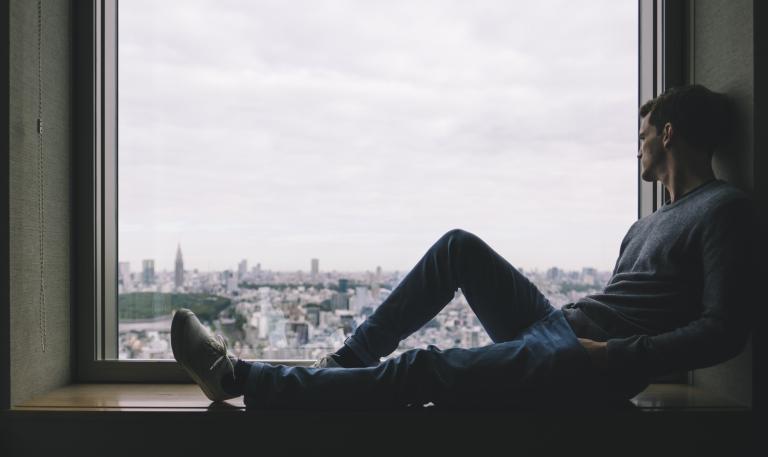My wife’s phone rang a couple of times last night. First, it was the pastor of a church in the area asking her to play piano for a funeral later this week. A few minutes later, someone from our own church called to say one member had a friend in the hospital and another had a couple of friends who were suddenly dead.
A little while later, I bumped into a neighbor whose wife died a few months ago. He told me about a medical scare he’d had that is going to involve long-term rehabilitation.
All this happened in a few minutes on just a single day. Multiply these terrible occurrences by every minute of every day, and you begin to get a sense of what real life is. We all hear stories like these all the time.
Mostly, we ignore them. In spite of the pervasiveness of such suffering, it’s easy to go through life not seeing how much the tapestry of human life is woven with dark threads. Our culture, with its emphasis on atomistic individualism and consumer hedonism, obscures the reality of suffering and loss from our vision most of the time.
Jordan Peterson is fond of talking about how difficult life is. He repeatedly says this obvious thing because most of us are only half-conscious of it. Most of the time, we are mostly ok. When we are not, the modern salves of distraction are there for us. Very little disturbs our comfortable dream.
One reason for this is that we don’t really know our neighbors. Our family heard all this bad news last night because we have made a concerted effort to live our lives connected to members of the communities we’re part of. That’s not the case for people living more culturally conformed lives. Our culture encourages isolation. Isolated people tend not to see the sufferings of others.
What isolated people do tend to see is the glowing representation of reality put forward in the media. The average American now is so transfixed by the corporate, consumerist vision of life that he believes wholeheartedly the products pumped out by the unreality machine are maps of the way things truly are.
There is no suffering in the vision of reality these people consume. Instead, it’s all style and cheap laughs, youth and clear skin. There is no room for people who die suddenly or suffer long-term debilitating illnesses. The result is that people caught up in our common, consumerist hallucination cannot see suffering in the real world, even their own. A globally mediated vision of a secular, consequence and suffering-free utopia represses their awareness of the sadness and pain in their own hearts as well as in those of others.
It doesn’t have to be this way. Naturally, we can’t fall into deep grief over every sad story we hear. But, we can stop to notice. We can acquaint ourselves more intimately with the real. We can free ourselves from false narratives long enough to grasp the actual nature and texture of life and, when we have seen the ubiquity of suffering, respond with a redoubled effort to relieve it through disciplines of compassion and hospitality. And by accepting these disciplines, lighten our own suffering as well.











